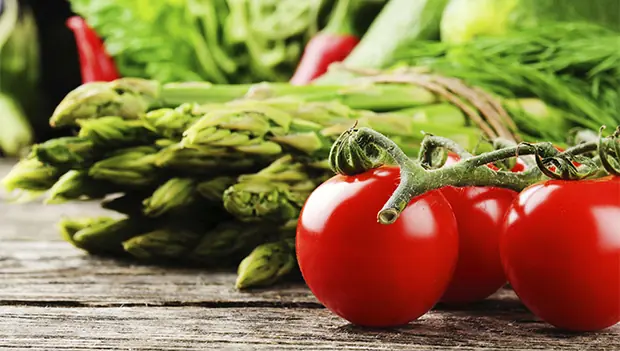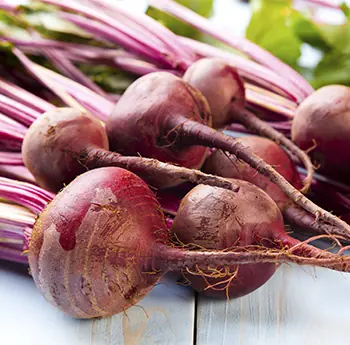
Here's the good news: spring produce is all the rage right now. Here's even better news: In-season fruits and vegetables not only tastier but are higher in nutritional value and lower in cost than their out-of-season counterparts.
Don't waste another minute of training season paying for and munching on the wrong foods. Instead, stock up on the best in-season options for runners. Pick the ones you like and incorporate them into your spring-season meal planning.
Nutrition Events Near You
Asparagus
Why it's good: Asparagus is best known for its anti-inflammatory and antioxidant benefits. It's also rich in a wide variety of antioxidant nutrients including:
- Vitamin C: helps the body absorb iron
- Vitamin A: helps maintain eye health
- Potassium: helps to maintain healthy blood pressure
- Vitamin K: important for bone health
Additionally, asparagus is a good source of vitamin E, zinc, magnesium and selenium. Collectively, these anti-inflammatory and antioxidant nutrients are closely linked to a reduced risk of chronic health problems like heart disease and type 2 diabetes.
It supplies plenty of fiber (3 grams per cup) and contains a significant amount of inulin—a prebiotic that provides beneficial gut bacteria. Beneficial bacteria are associated with better absorption of nutrients and improved immune system function.
It's also rich in B-vitamins, which play a key role in carbohydrate metabolism and the management of blood sugar levels.
Use it: Purchase asparagus that's firm and crisp not dried out or shriveled. Wrap the tips in a damp paper towel and store in the refrigerator when you get home and use it within two days of purchasing, if possible.
The best way to prepare asparagus and preserves its nutrients is to steam or saut? the stalks for 5 to 10 minutes. When finished, it can stand alone as a side dish or be tossed with pasta, added to salads, cooked into omelets or incorporated into a stir-fry.
Beets
Why it's good: Beets are an excellent source of folate, which can help reduce the risk of heart disease and protect against birth defects. As an athlete, folate helps your body regenerate the healthy red blood cells necessary for the transport of oxygen to working muscles.

Beets are also a good source of magnesium, which helps build and maintain strong bones, and potassium for healthy blood pressure. The edible beet greens provide vitamin K, calcium, and magnesium—all of which are important for building and maintaining strong bones. The magnesium also provides enhanced control of inflammation and blood sugar.
An estimated 10 to 15 percent of people may experience reddening of the urine (beeturia) after consuming even moderate amounts of beets. Don't be concerned if this happens for you, it may simply indicate an irregularity in iron metabolism—a sign that you're deficient in iron, have low iron excess or a metabolism issue. If this occurs, follow up with a health care professional.
Use it: Cut the greens from the beet, wash, and wrap in a paper towel. To prepare the beet itself, quarter each one and steam them for 15 minutes. Remember, always cook you beets for less than an hour to preserve nutrient quality.
Once steamed, rub off the skin with a paper towel. Wear gloves during this process to avoid dying your hands. The finished product can be served as a side dish or cooled and shaved onto a salad. Purchase already-prepared beets or pickled beets if you're running short on time. Prepare the beet greens similar to Swiss chard or spinach and boil for one minute or lightly saut?.



